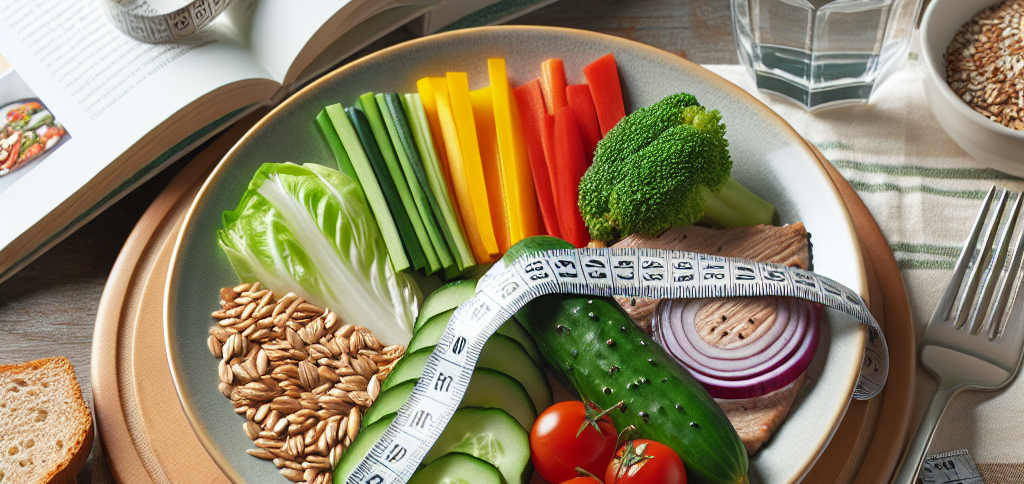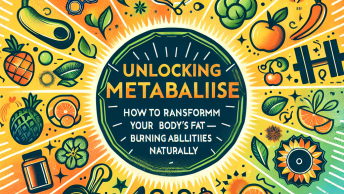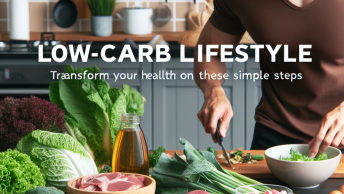10 Essential Components of an Effective Fat Loss Meal Plan
Embarking on a weight loss journey can be daunting, especially with the abundance of conflicting information available. A well-structured meal plan can serve as your roadmap to success, guiding you through your fat loss journey with clarity and purpose. Here, we break down the ten essential components that make for an effective fat loss meal plan.
1. Caloric Deficit
The cornerstone of any fat loss plan is a caloric deficit. To lose weight, you must consume fewer calories than you burn. This doesn’t mean drastically cutting your intake but rather creating a sustainable deficit. A daily reduction of 500-1000 calories can result in a healthy weight loss rate of about 1-2 pounds per week.
2. Balanced Macronutrients
A balanced distribution of macronutrients – carbohydrates, proteins, and fats – ensures your body gets the energy and nutrients it needs. Aim for:
- Proteins: Vital for muscle maintenance and satiety. Opt for lean meats, fish, tofu, and legumes.
- Carbohydrates: Choose complex carbs like whole grains and vegetables, which provide sustained energy and fiber.
- Fats: Include healthy fats from sources like avocados, nuts, seeds, and olive oil to support cellular functions.
Balancing these macronutrients can propel your fat loss journey effectively.
3. Protein Intake
Proteins are not just for bodybuilders. They play a crucial role in a fat loss meal plan by increasing metabolism and aiding muscle recovery. A higher protein intake also helps curb appetite and reduce cravings, making it easier to stick to your calorie goals. Aim for about 0.6 to 1.0 grams of protein per pound of body weight daily.
4. High Fiber Foods
Incorporating high-fiber foods such as fruits, vegetables, and whole grains into your meal plan can enhance feelings of fullness and satisfaction. These foods take longer to digest and help stabilize blood sugar levels, reducing the tendency to snack on unhealthy items.
5. Hydration
Don’t underestimate the power of water in your fat loss plan. Staying hydrated supports all bodily functions and can often alleviate what we mistakenly identify as hunger. Begin your day with a glass of water, and aim for at least eight glasses throughout the day. Herbal teas or infused water can be tasty alternatives.
6. Meal Timing and Frequency
While traditional diet advice often suggested three large meals a day, many find benefit in more frequent, smaller meals. This keeps metabolism active and prevents extreme hunger that leads to overeating. Experiment to find what schedule best suits your lifestyle and hunger patterns.
7. Mindful Eating
Mindful eating is about being present during meals, which helps prevent overeating and promotes better digestion. Focus on your food, chew slowly, and savor each bite. This practice not only enhances the enjoyment of your meal but also allows time for the body to signal when it’s satisfied.
8. Planning and Preparation
Failing to plan is planning to fail. Taking time to plan your meals each week can prevent last-minute unhealthy choices. Prepare meals in batches and store them in portion-controlled containers. This not only saves time but also ensures you always have access to healthy options.
9. Incorporate Nutrient-Dense Snacks
Healthy snacking between meals can prevent blood sugar dips and energy slumps. Choose snacks like nuts, yogurt, or fresh fruit. These options provide nutrients, curb hunger, and keep you on track to meet your daily calorie and nutrient goals.
10. Sustainable Changes
The most successful meal plans are those that are sustainable over the long-term rather than those based on extreme restrictions. Adopt changes that you can maintain beyond your weight loss period. This ensures the weight stays off and promotes overall wellness.
Bonus: Seeking Professional Guidance
If crafting a meal plan on your own feels overwhelming, or if you’re not seeing results, don’t hesitate to seek professional guidance. Nutritionists and dieticians can provide personalized advice tailored to your needs. Additionally, there are reputable online programs that can offer structured guidance.
One such resource comes highly recommended. Click Here to learn more about how you can enhance your fat loss strategy with expert support and proven meal plan tactics.
In conclusion, the journey to fat loss begins with a commitment to positive change, supported by a strategically crafted meal plan. By incorporating these essential components and setting realistic goals, you can make steady progress towards a healthier, more confident you. Remember, consistency is key, and every small step is a giant leap toward your ultimate goal.






